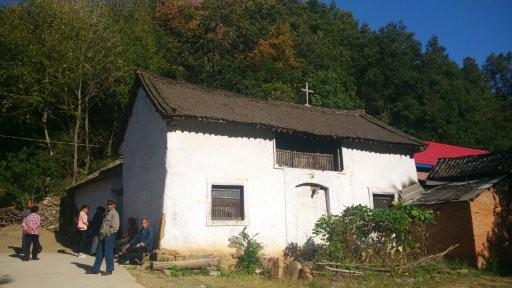It’s been two years since the pandemic began, many churches have achieved initial success in online pastoral ministries. For the younger generation of believers who are proficient in using smart devices such as mobile phones and computers, they may have been used to online gatherings. But as for the hundreds of rural churches, how have they been conducting gatherings? For those middle-aged and elderly rural believers who cannot participate in online worship, how could they go through this difficult time?
Recently, a staff member of Gospel Times, an online Chinese Christian newspaper talked with an elder in charge of a village church somewhere in North China on the phone. Having interviewed her, we got a glimpse of the situation of the rural churches and their members under the epidemic.
Gospel Times: Hello, what is the current situation of believers in your church? How have they stuck to their beliefs during the epidemic of COVID-19?
Elder Z: We are a village church which was established in 1899 when the gospel took root here. Later, with the services and inheritance of pastors from generation to generation, the church has continued to this day. Since the division of the pastoral areas in 2002, we have become the central church of the pastoral area, with a dozen rural fellowships under the pastoral area and around the township.
Before the pandemic, there were more than 500 believers in the church. But afterwards, the church has stopped gatherings since the first half of last year, which haven’t resumed yet.
In addition, there are quite a lot of elderly believers here, most of whom are not in good physical condition or have limited mobility. After the outbreak of COVID-19, their family members might have dissuaded them from attending church out of the consideration of epidemic prevention or travel inconvenience, or other reasons. Now there are probably about 150 believers here who can often attend services.
Gospel Times: How did the church carry out the pastoral ministries during the suspension due to the epidemic? How did they go?
Elder Z: During the suspension period, we set up a WeChat group for believers to carry out the pastoral care. We followed churches in cities to organize believers to study the Bible online. Before this Easter Sunday, we have basically completed our Bible study for one time.
Besides, our followers also collected the widely circulated short spiritual hymns, such as the 401st hymn from the Chinese New Hymnal with the title God Loves the World, and recorded them for learning. We hope to do the evangelism ministry with these short catchy songs.
Speaking of other forms of online pastoral care, it has been really difficult to do it just by the church itself. On the one hand, basically both volunteers and believers here are middle-aged and elderly farmers whose education levels are not very high, many of whom don’t know how to use mobile phones, especially the elders. It’s alright to organize a Bible study or prayer in the WeChat group. However, pastoral ministries such as Sunday services, mainly rely on the live streaming of sermons by churches in the cities.
Though on-site gatherings were suspended in the past two years due to the epidemic, the church's visitation ministry has not stopped. With regard to those believers who were sick or had difficulties at home, the visiting group and church staff would visit them and pray for them, encouraging them not to lose faith in God. I believe this is part of pastoral care.
Gospel Times: In the past two years, based on your observations, can you talk about the current situation of rural churches?
Elder Z: I think what our village churches lack most right now are young volunteers and leading pastors.
In terms of young volunteers, I can only say that there are fewer and fewer young people staying in villages now. Those who are able-bodied are going out to work in cities. Most of our churches and rural meeting points depend on middle-aged female believers and volunteers, who can do well in leading daily spiritual practice or visitation services, but can’t fulfill churches’ needs related to physical labor, pluming and electricity maintenance, audio equipment, or the Internet.
To give a practical example, all aspects of work have now involved smart and electronic devices. Sometimes the church in the city needs us to collect some information about our church or believers, for which we have to submit the electronic version. Unfortunately, here we don’t have any church staff who can use computers. So, we all write it down by hand, and then ask the young people in the village to type it in a computer before we can submit it. We can do it a couple of times to begin with, but it’s not a long-term solution. Therefore, the church staff often pray together, asking the Lord to provide us with young volunteers who can take on the burden of helping the church store more information electronically.
The need for leading pastors is more urgent. Since our church is not too far from the city, so pastors in the city come to preach here every now and then for convenient transportation. But in other remote mountainous areas, it is difficult for churches to lead pastoral ministries.
There is a meeting point on the mountain in our neighborhood town. Originally, those who attended services were few elderly people. Due to the pandemic, even fewer believers would come to meetings. Now there are less than 10 people who don’t even know how to use mobile phones. With no one leading, they can only pray together at gatherings, which makes me feel very sad. My greatest wish is that Jesus would send more young pastors here to lead these old Christians and terminate the epidemic as soon as possible, so that all Christians can return to the Lord’s temple to worship together.
-Translated by Shuya Wang








